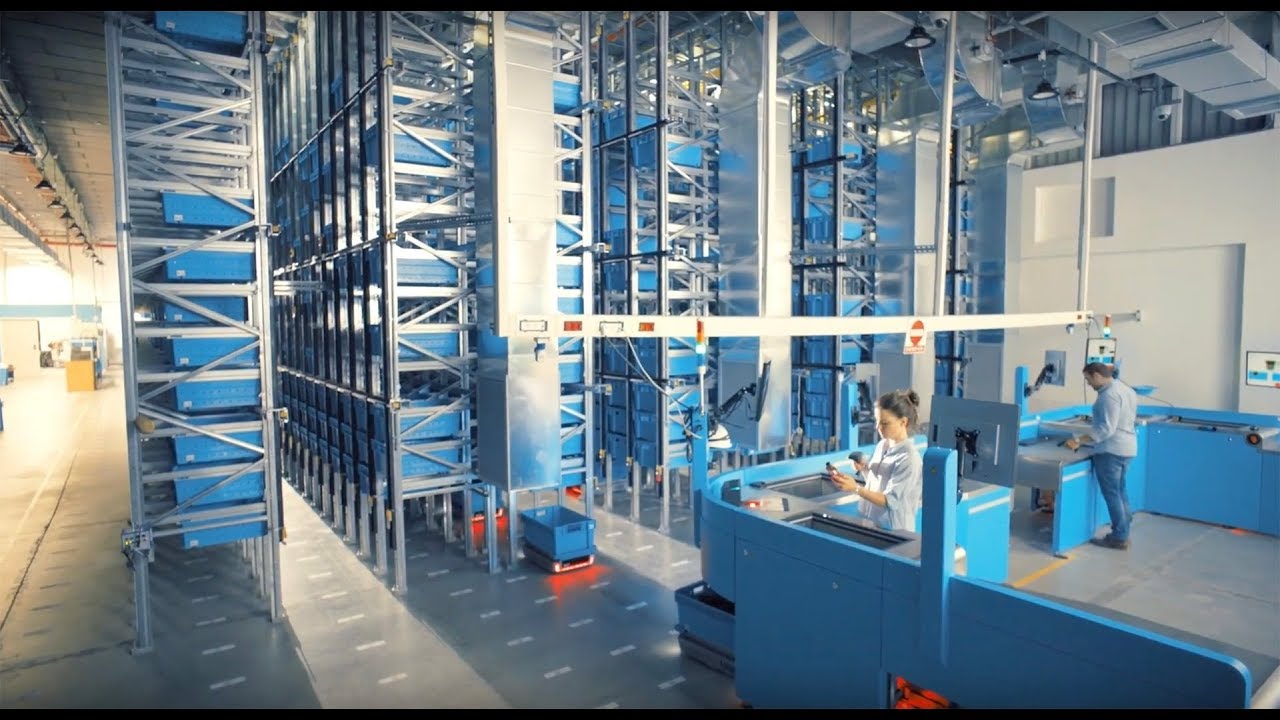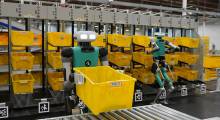Get Fabric Inc. today announced that it has closed a $200 million Series C funding round, bringing its valuation to more than $1 billion. The New York-based company runs micro-fulfillment operations for grocery and general merchandise retailers in New York, Washington D.C., and Tel Aviv.
“It has never been so complex and challenging for retailers to fulfill and deliver online orders,” stated Fabric. “With these funds, Fabric has emerged as a new kind of unicorn — a 'robocorn' uniquely positioned to solve these challenges in the retail space.”
Founded in 2015, the company said that its proprietary micro-fulfillment technology stack including robots and software is designed from the ground up to make on-demand fulfillment profitable and scalable for all retailers. Fabric has offices in New York, Tel Aviv, and Atlanta, with over 300 team members globally.
'Robocorn' to respond to e-commerce growth
E-commerce sales penetration more than doubled to 35% in 2020, the equivalent of roughly 10 years of growth within a few months, according to McKinsey & Co. This unprecedented surge in online shopping has been compounded by evolving consumer expectations to receive their orders faster than ever, a prohibitively expensive and challenging proposition for retailers.
This trend will only continue, as the same-day delivery market in the U.S. is poised to grow by $9.82 billion over the next four years, predicted Research and Markets. Despite this surge in consumer demand, fulfillment capacity has struggled to keep up, and finding and retaining labor remains a costly bottleneck.
“At the center of this perfect storm of e-commerce is Fabric and our ability to enable on-demand retail at profitable unit economics,” said Elram Goren, co-founder and CEO of Fabric. “While we use the term ‘robocorn’ a bit tongue in cheek, we see this milestone as a real turning point in the industry, from what was once trepid exploration of micro-fulfillment to total market validation and now rapid expansion.”
“We’re thankful to our partners for trusting us to serve them and to our incredible team who will continue moving mountains to make our vision a reality,” Goren added. “This is still ‘Day 1’ for us, and we’re extremely excited about the road ahead as we expand our offering into new markets, drive more efficiencies across the supply chain, and focus on scaling.”
Fabric recently announced major partnerships with Walmart, Instacart, and FreshDirect, and it works with local last-mile delivery providers.
Fabric investors and expansion plans
Existing investor Temasek led Fabric's Series C round. Koch Disruptive Technologies, Union Tech Ventures, Harel Insurance & Finance, Pontifax Global Food and Agriculture Technology Fund (Pontifax AgTech), Canada Pension Plan Investment Board (CPP Investments), KSH Capital, Princeville Capital, Wharton Equity Ventures, and others also participated.
Past investors include Corner Ventures, Innovation Endeavors, Aleph, Playground Ventures, and Evolv (Kraft Heinz). Fabric has raised $336 million to date.
“We believe the movement to local fulfillment presents an opportunity to make retail and e-commerce more sustainable, and we’re thrilled to partner with the leader in micro-fulfillment to make this vision a reality,” said Eric Kosmowski, Managing Partner at the Princeville Climate Technology Fund. “By leveraging existing real estate with a small footprint in close proximity to end consumers, utilizing more sustainable packing materials, and minimizing shrink and waste through smart inventory management, Fabric’s micro-fulfillment centers could lower last-mile emissions significantly.”
Fabric said it plans to use its latest funding to expand its on-demand fulfillment platform across the general merchandise market and build a network of micro-fulfillment centers across major metro areas in the U.S. to make fast delivery scalable and profitable for retailers.
The company said it support this stage of hypergrowth by also heavily recruiting for its world-class technology, commercial, and operations teams in Israel and across the U.S.
Article topics
Email Sign Up
















